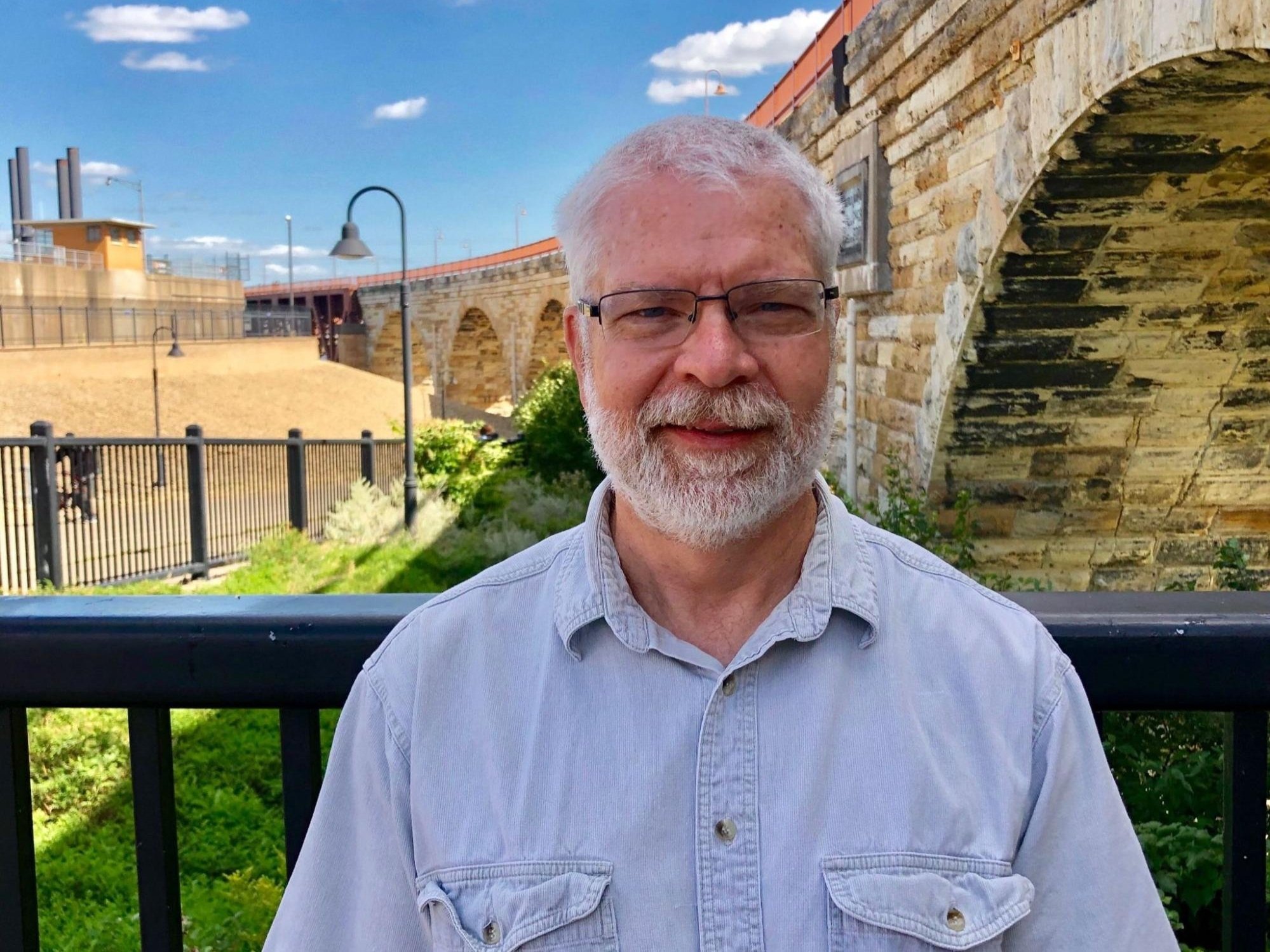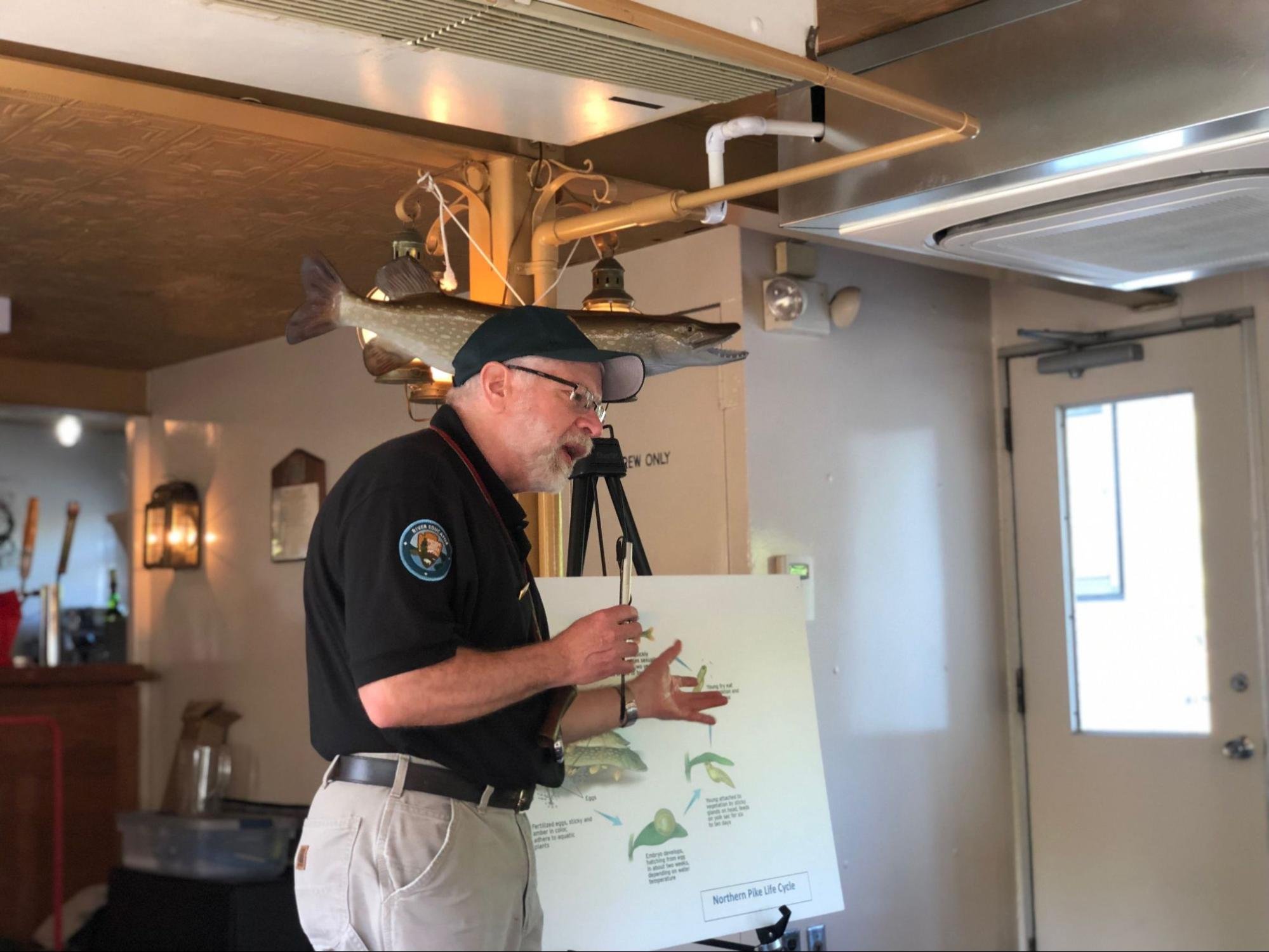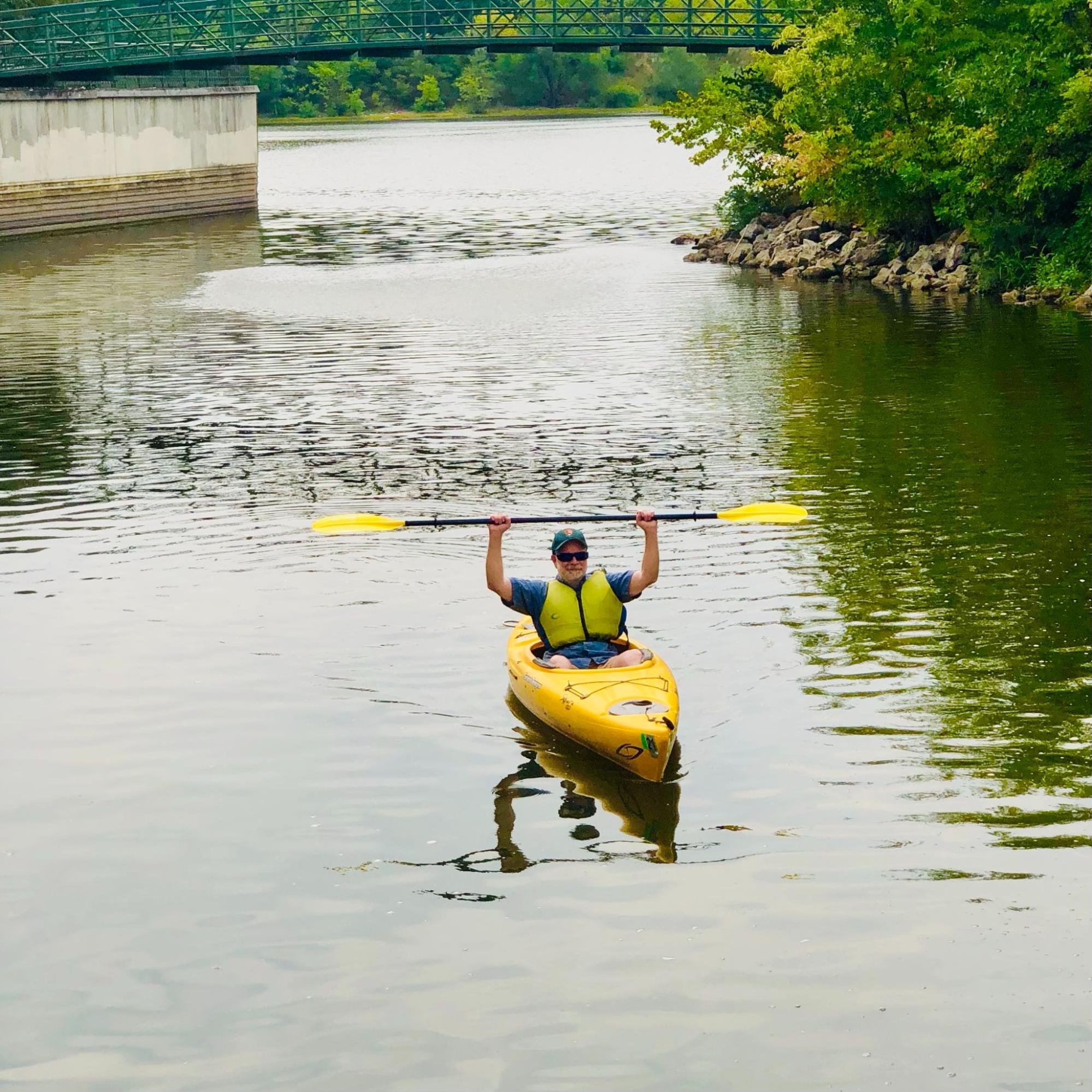Incorporating the outdoors into your classroom
Meet Mark Lex, a retired teacher and current River Educator with Mississippi Park Connection!
I taught a couple of years at the middle school level in Apple Valley, then 33 years at the high school level at Benilde-St. Margaret’s School in St. Louis Park. I primarily taught chemistry, but at one points also taught math, physical science, health, environmental science, astronomy, plus a handful of other courses. A lot of teaching goes on outside of the classroom. I was also a student council advisor, track coach, Environmental Club advisor, Summer Science and canoe trip leader, extracurricular school bus driver, and was a first aid EMT for our athletic teams. I enjoyed being involved and the variety of things being a teacher allowed me to do.
“I know I’m not alone in feeling that being a teacher is a calling. I feel very blessed to be able to be a part of the lives of so many young people.”
Impact as a River Educator with Mississippi Park Connection
Being a River Educator is an opportunity to continue hopefully making a difference in children’s lives in my retirement years. In particular, I hope to help children know, appreciate, and take care of the environment. Through a paper I researched in college, I found that environmental sensitivity develops through experiences in the outdoors, and through mentors such as parents and teachers.
Recently, I was helping with a National Park Service program at Hidden Falls Regional Park. After telling the children we were going into the woods for an activity, one of the children asked me, “Is the woods scary?” A child who thinks the woods is a scary place might not believe the woods are worth taking care of and protecting. As a River Educator, I get to try to change that thinking.
These children learned that nature is a great place to play, live, learn, and enjoy. It is very fulfilling to make children aware of this and I hope that it will factor into the environmental decisions they make in the future.
Benefits of incorporating outdoor education into your curriculum
There has been a lot of research recently of the benefits of outdoor education. An outdoor education program can help children gain a more positive attitude toward the environment. A summary of outdoor education research from the University of Wisconsin at Stevens Point also says that, “Research has documented increased standardized test scores, enhanced attitude about school, improved in-school behavior, improved attendance and overall enhanced student achievement when students learn in and about nature.” There is also some evidence that spending time in the outdoors can increase students’ physical, mental, and social health.
Resources to bring the natural world into your classroom
Taking part in a Mississippi National River and Recreation Area / National Park Service field trip or online experience would be an excellent way to connect students to the outdoors.
Minnesota fortunately has many nature centers and environmental learning centers that provide programs for school groups. The Minnesota Association of Environmental Education has put together a map of organizations, schools, parks, government agencies, and other entities involved in environmental education
Check out Teach Outdoors! Minnesota. They have all kinds of resources to help teachers teach in their own schoolyard, including a free weekly online workshop for all teachers.
Words of wisdom for these modern times
In many ways, technology has changed the way we teach compared to 40 years ago when I started teaching. But ultimately, teaching is the same as it has been since the beginning of time. Teaching is about encouraging students to wonder, think, discover, and create.
On retirement
There are very few days, if any, where I’m sitting around doing nothing. Enjoying retirement is as easy as doing what I enjoy!



